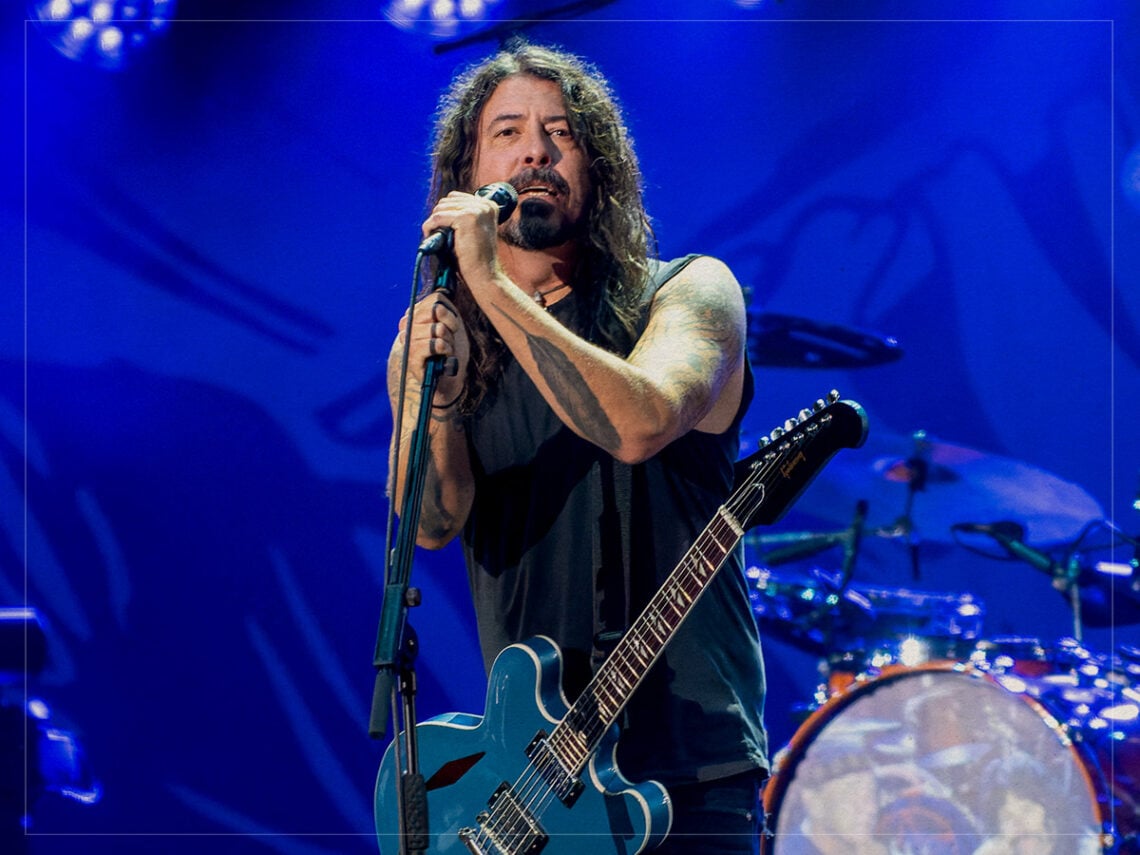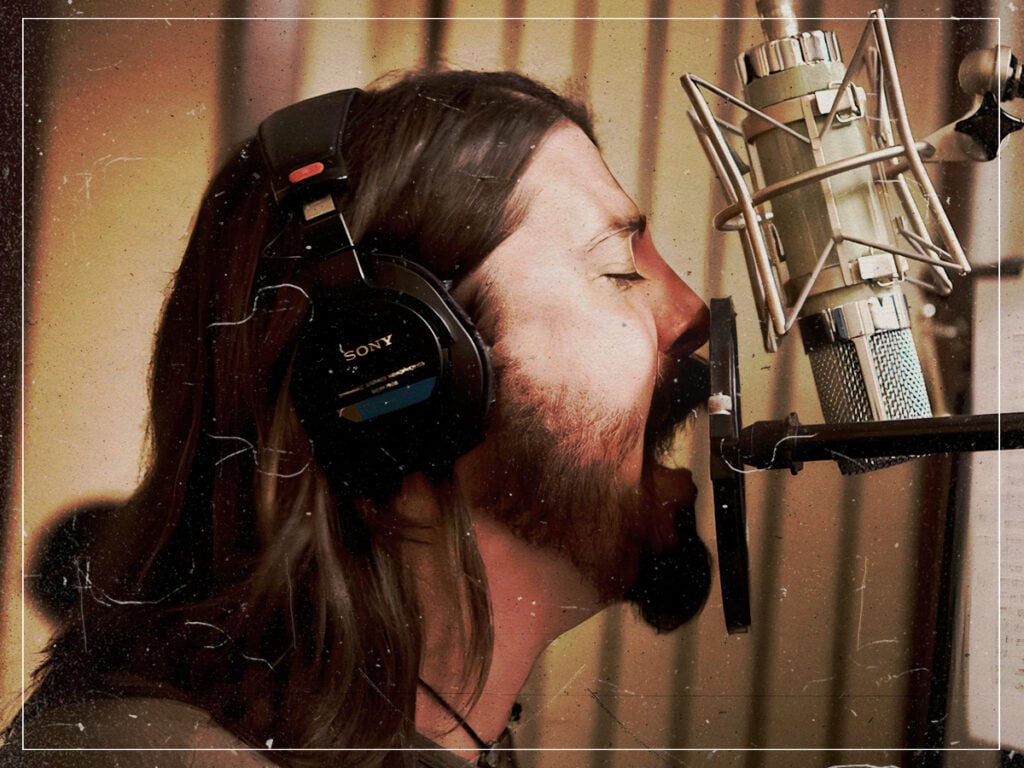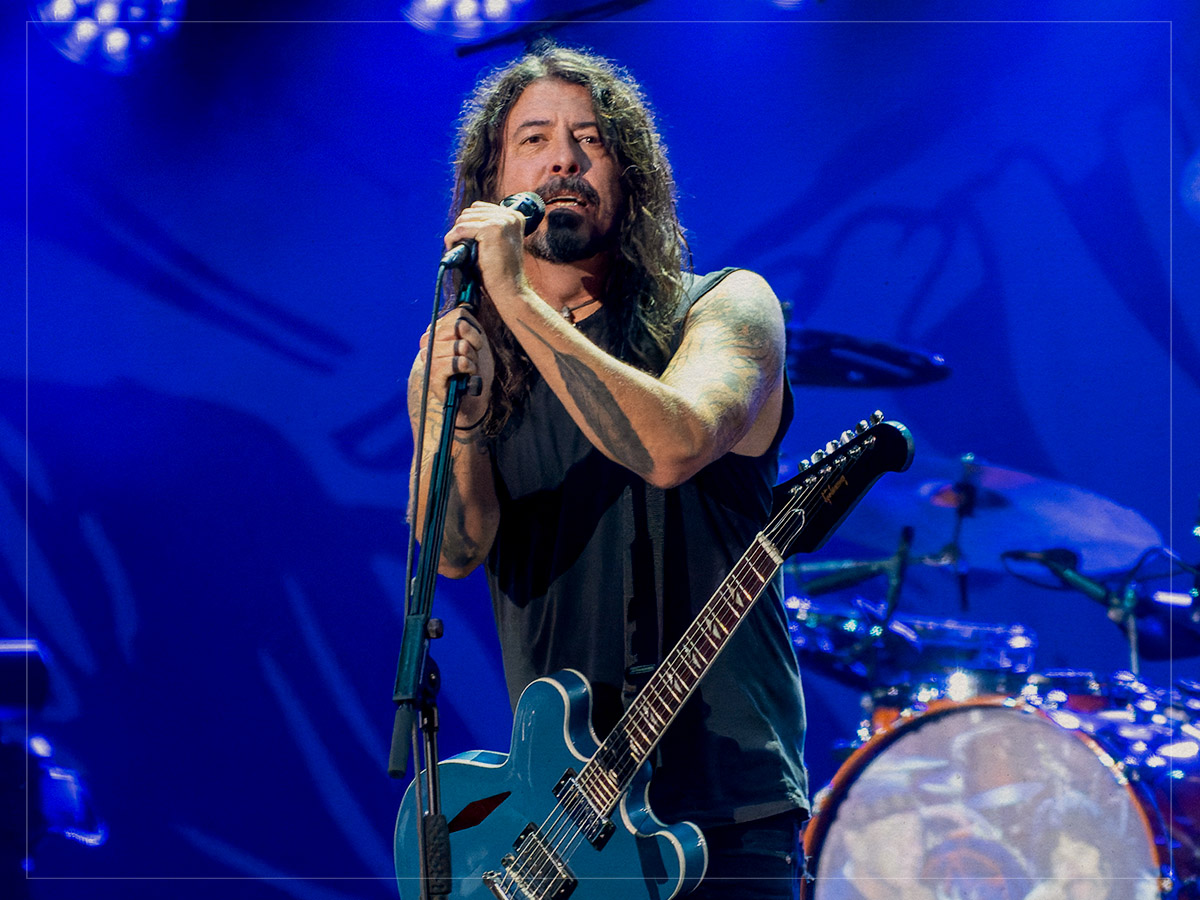
(Credits: Raph Pour-Hashemi)
Tue 28 October 2025 19:30, UK
Dave Grohl already had a complex relationship with the idea of a legacy by the time he stepped into the role of the frontman.
Stepping out from behind the drums meant more than just cutting his hair – it meant adopting a new level of self-belief and not getting too caught up in the likelihood of being seen as just the guy from the tragic grunge band. Starting his own project, he already knew what it took to be a solo rock ‘n’ roll star. He already felt he didn’t have that kind of charisma – but he stepped out anyway, too committed to let anything slow him down.
“I hate the solo artist aspect of rock ‘n’ roll,” Grohl admitted in 1997. “I don’t have enough personality or charisma to be a solo star.”
He went on, “To me, the most important thing is getting into a studio and making an album that is 12 or 14 amazing songs, getting up onstage, and making people happy by delivering the rock.”
Grohl also said that one of the only reasons Foo Fighters became what it did was because he was “meticulous” and “overworked”. Eventually, from The Colour and the Shape onwards, things became more personal, especially lyrically, with Grohl lifting the veil that blocked the audience from getting to know the real artist behind the art.
It also revealed the mountain of influences Grohl has carried since before even Nirvana, and how he can sprinkle them into his own work, often entirely undetected.
 Dave Grohl recording music in 2011. (Credits: Far Out / Exclusive Media Group)
Dave Grohl recording music in 2011. (Credits: Far Out / Exclusive Media Group)
Along with the obvious, like The Beatles and Led Zeppelin, many of these are, of course, those at the pinnacle of punk and grunge who went on to shape an entire group of rock legends. Grohl also has one of the most diverse musical tastes you’ll ever come across, one moment ranting about how bands like Melvins changed the entire landscape, then the next discussing how The B-52’s “opened up a whole new world to me”.
But one in particular that Grohl argues you can always trace through the lineage of most bands – Nirvana and Foo Fighters included – is Pixies. In fact, Grohl once said that Nirvana “always made sure everyone knew we were just ripping off the Pixies” and that their record Surfer Rosa was “one of the most influential albums” of all time.
During a review for The New York Times, Grohl took this a step further, detailing all the ways that the Pixies changed the modern musical landscape.
“Face it, the quiet/loud dynamic that’s dominated alternative radio for the last 14 years can be attributed to one and only one band, the Pixies,” he argued. “Undoubtedly one of the most influential groups of the new rock generation, they are back on tour to reclaim their status as the coolest American band since, well, possibly ever.”
He added that they are a “live band like no other” and praised Frank Black’s solo albums and Kim Deal’s work with the Breeders and the Amps. He also called drummer David Lovering a “magician” and Joey Santiago a bad (“as in good”) guitarist.
When Grohl looks at the landscape today, he still sees the undeniable impact of the Pixies, and how the trend back then of blending “elements of quirky, weird punk into sweet pop” still stands. In his mind, they didn’t just provide good tunes, they reinstated the entire infrastructure of modern rock and pop, and led the way with toying with different aspects of musical dynamics to make music feel more intimate and expansive – often at the exact same time.
Related Topics
